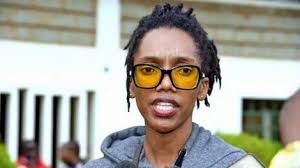Source: nairobinews.nation.co.ke
Intersex and transgender population will get free medical services should a proposal by a task force formed by the Attorney General is adopted by the government.
The report presented to the AG also says the government should give free medical insurance health cover under the National Health Insurance Fund (NHIF) to intersex persons.
Sex reassignment surgery for intersex usually involves a series of operations that take place over several months or years. Patients can choose to have some or all of the surgeries.
To comprehend the overall transgender surgery cost, one must understand that ‘sex reassignment’ is a very extensive process. The cost of a transgender person’s transition can vary widely, and pricing information is often not available.
The services including the fee include potential costs for anesthesia, hospital stay and each of the potential surgeries that someone transitioning from one gender to the other.
Most patients pay for the surgeries from their pocket, it is very rare for insurance to cover the procedures.
THIRD GENDER
However, if the recommendations are adopted, the government will have to provide all the services.
However, the surgeries can only be carried out in case of a medical emergency and this will be done on informed consent by the government.
The task force, chaired by Mbage Njuguna Ng’ang’a has recommended that the ministry of health will work with other regulatory agencies towards the protection against unintentional medical intervention and ensure effective remedy for persons otherwise affected.
The term intersex describes a person born with sex characteristics – genitalia, gonads, hormones and chromosomes that do not match the typical male or typical female body. As such, there has been a push for Kenya to create laws that recognise intersex as the third gender.
According to the United Nations, approximately 1.7 percent of newborn babies across the world can be classified as intersex.
Based on the UNHCR Free & Equal global campaign statistics, as per Kenya’s current population of 47,848,479 million, intersex persons can be estimated at between 23,925 and 813,425 nationally.
MEDICAL INTERVENTION
The number of intersex persons in Kenya has also been documented by the Child Rights International Network (CRIN), which estimates that 20,000 of Kenyans alive are born intersex though it is difficult to tell the number of intersex individuals in Kenya as many seek anonymity due to stigma while some are unaware of their state.
It is not clear whether the government will take care of medical interventions of about 20,000 intersex Kenyans.
The Independent Policing Oversight Authority (Ipoa) also wants intersex cells established in police premises for their rights to be protected.
Ipoa commissioner Doreen Muthaura said the proposal to create these sections in cells and borstal institutions was part of a task force report on the matter.
Commissioner Walter Ogony said the move will help address cases of sodomy in police custody and incidents of inmates tormenting each other.
“The confinement rooms should also have cameras and be fitted with alarm bells so they can raise alarm if in danger,” Dr Ogony said during a breakfast meeting of the Ipoa and the Kenya Editors Guild (KEG) at Intercontinental Hotel in Nairobi.Transgender activist Audrey Mbugua outside Eldoret law courts on June 27, 2019.
